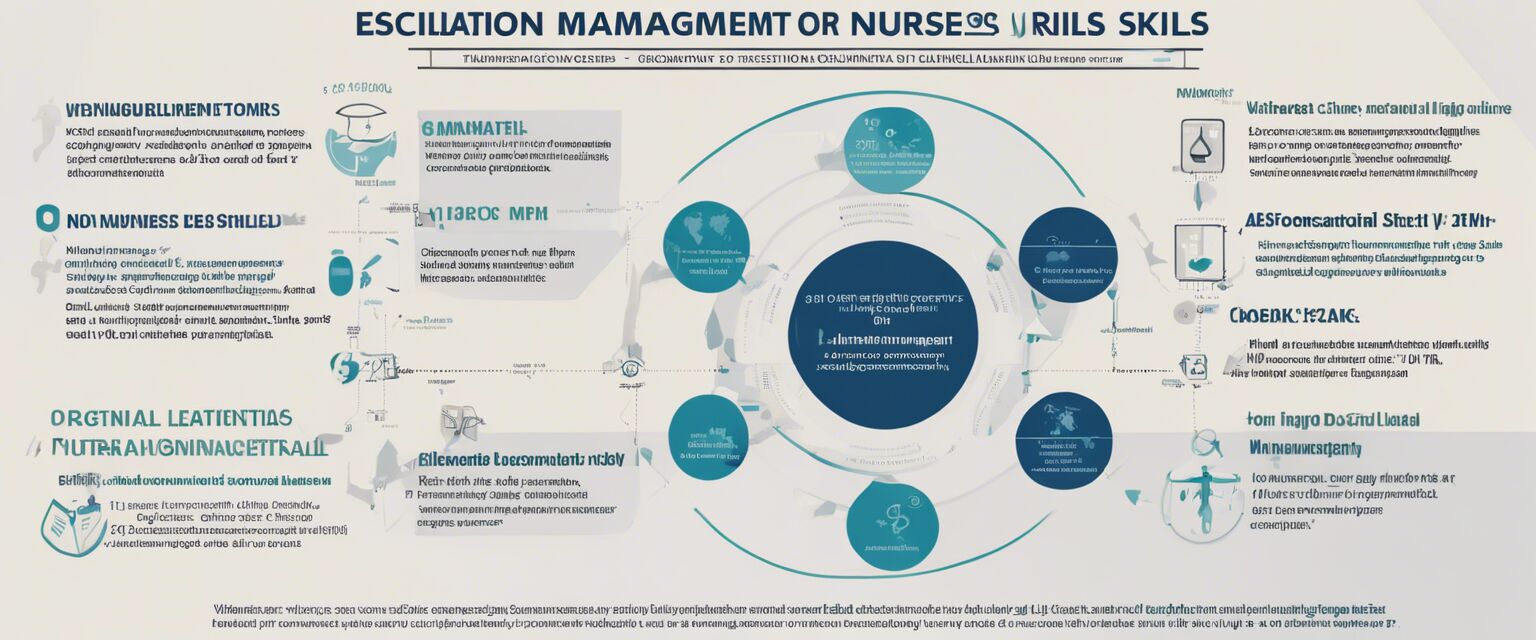
Nursing Leadership and Management
Key Takeaways
- Nursing leadership focuses on guiding and motivating staff to improve patient care.
- Effective management involves planning, organizing, and coordinating resources.
- Developing leadership skills can enhance job satisfaction and team dynamics.
- Continuous professional development is crucial for nursing leaders.
- Mentorship and collaboration are essential for fostering growth in nursing.
Nursing leadership and management are integral to the healthcare system. As the healthcare landscape evolves, the need for skilled leaders and managers in nursing becomes increasingly critical. This guide will explore essential leadership and management skills, offer insights on developing these skills, and highlight the impact of effective leadership on nursing practice.
Understanding nursing leadership
Nursing leadership is about influencing and guiding others to achieve optimal patient care. It involves various skills, including emotional intelligence, decision-making, and communication. Nurses in leadership roles must inspire their teams while managing challenges that arise in the healthcare environment.
Core competencies of nursing leaders
- Emotional intelligence: The ability to understand and manage your own emotions and those of others.
- Critical thinking: Analyzing situations and making informed decisions quickly.
- Communication: Effectively conveying information and listening to team members.
- Conflict resolution: Navigating disagreements and finding solutions that benefit everyone.
- Mentorship: Guiding and supporting less experienced nurses in their professional growth.
Importance of management in nursing
Management in nursing involves planning, organizing, staffing, directing, and controlling healthcare resources to achieve specific goals. Good management practices ensure efficient patient care and contribute to a positive work environment.
Key responsibilities of nursing managers
- Overseeing daily operations to ensure high-quality patient care.
- Budgeting and resource allocation.
- Staff recruitment, training, and evaluation.
- Developing policies and procedures to enhance patient safety.
- Encouraging professional development among team members.
Developing leadership and management skills
To be effective in nursing leadership and management, continuous personal and professional development is essential. Here are some strategies for developing these skills:
Strategies for skill development
- Participate in training programs: Enroll in workshops and courses focused on leadership and management.
- Seek mentorship: Collaborate with experienced leaders who can provide guidance and support.
- Engage in self-reflection: Regularly assess your skills and areas for improvement.
- Join professional organizations: Network with other nursing professionals to share insights and experiences.
- Stay informed: Keep up with the latest trends and changes in healthcare policies and practices.
Collaborative leadership models in nursing
Collaborative leadership models emphasize teamwork and shared decision-making. These models can improve communication and foster a culture of respect among nursing professionals.
Types of collaborative leadership models
| Model | Description |
|---|---|
| Transformational Leadership | Focuses on inspiring and motivating team members to achieve their potential. |
| Servant Leadership | Prioritizes serving others and meeting the needs of employees and patients. |
| Transactional Leadership | Emphasizes structured tasks and rewards for meeting specific goals. |
| Participative Leadership | Encourages team input and collaboration in decision-making processes. |
Challenges in nursing leadership and management
Nursing leaders and managers face various challenges, including staffing shortages, budget constraints, and high patient acuity levels. Understanding these challenges is the first step toward effective problem-solving.
Common challenges
- High turnover rates among nursing staff.
- Burnout and job dissatisfaction.
- Limited resources and budget restrictions.
- Keeping up with regulatory changes and standards.
- Balancing administrative duties with patient care responsibilities.
Pros
- Effective leadership improves patient outcomes.
- Strong management fosters a positive work environment.
- Leadership development enhances career advancement opportunities.
Cons
- Leadership roles can be stressful and demanding.
- Time constraints may limit professional development opportunities.
- Potential conflicts within teams can arise.
Conclusion: The impact of nursing leadership and management
In conclusion, effective nursing leadership and management are vital components of a successful healthcare system. By developing essential skills and fostering a collaborative environment, nursing professionals can significantly enhance patient care and overall team performance.
Tips for aspiring nurse leaders
- Be proactive in seeking leadership opportunities.
- Develop a strong professional network.
- Practice effective communication skills.
- Stay informed about the latest healthcare trends.
Further reading
For more information on nursing leadership and management, check out our related articles:
- Professional Development in Nursing
- Technology in Nursing Management
- Essential Tools for Nurse Leaders
- Patient Care Essentials for Nurses
- Clinical Reference Guides for Nursing











